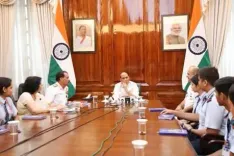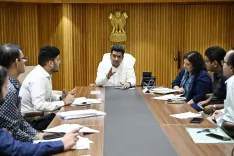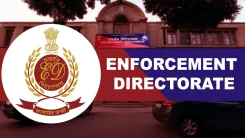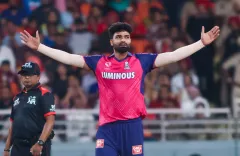Did the SC Just Transfer Pleas Against the Online Gaming Act to Itself?

Synopsis
Key Takeaways
- Supreme Court consolidates petitions on Online Gaming Act.
- New Act bans real-money games while regulating other categories.
- Severe penalties for violators, including heavy fines and imprisonment.
- Key stakeholders affected include major online gaming platforms.
- Swift parliamentary approval reflects urgency in addressing online gaming issues.
New Delhi, Sep 8 (NationPress) On Monday, the Supreme Court took the significant step of transferring to itself the petitions currently pending in various High Courts that challenge the constitutional legitimacy of the Promotion and Regulation of Online Gaming Act, 2025.
This newly established Online Gaming Act prohibits all types of real-money gaming across the nation while also regulating and promoting games that are social, educational, and esports-related.
A bench comprising Justice J.B. Pardiwala and Justice K.V. Viswanathan granted the transfer petition submitted by the Union government, aiming to consolidate the cases from the Delhi, Karnataka, and Madhya Pradesh High Courts into one location to prevent multiple litigations.
"The proceedings from the Karnataka, Delhi, and Madhya Pradesh High Courts are hereby transferred to this Court. The respective High Courts are instructed to forward the complete records along with all interlocutory applications within a week," ordered the bench led by Justice Pardiwala.
Upon receiving the full records, the registry has been directed to schedule the matter for hearing at the earliest opportunity.
"If the involved parties wish to submit a writ petition accompanied by the complete record, they may do so with the registry," the bench clarified.
Just last week, Chief Justice of India (CJI) B.R. Gavai consented to prioritize the Centre’s transfer petition after the Union government highlighted that a petition opposing the Online Gaming Act in the Karnataka High Court is set for interim orders. Recently, the Madhya Pradesh High Court urged the Centre to respond to a challenge against the act, which is accused of infringing fundamental rights by implementing a blanket ban on "online money games", including games recognized as skill-based by the judiciary.
Previously, the Karnataka High Court had also requested a response from the Centre regarding a petition from Head Digital, while an online carrom platform had recently approached the Delhi High Court to contest the law.
During the recent Monsoon Session, Union Electronics and IT Minister Ashwini Vaishnaw presented the Promotion and Regulation of Online Gaming Bill, 2025, which was approved by both Houses of Parliament and subsequently received the President’s assent. Under the Online Gaming Act, providers of such services face heavy penalties, including fines of up to Rs 1 crore and imprisonment of up to three years. Promoting or advertising on these platforms may also incur fines of Rs 50 lakh and a two-year jail term.
Following the government's decision, all online money gaming platforms, including Dream11, Pokerbazi, and Rummy Circle, have ceased their cash gaming contests.
Prime Minister Narendra Modi stated that the Bill aims to safeguard society from the adverse effects of online money gaming after it was approved by Parliament. Remarkably, the Lok Sabha passed the Bill in seven minutes, while the Rajya Sabha followed suit in just 26 minutes.





